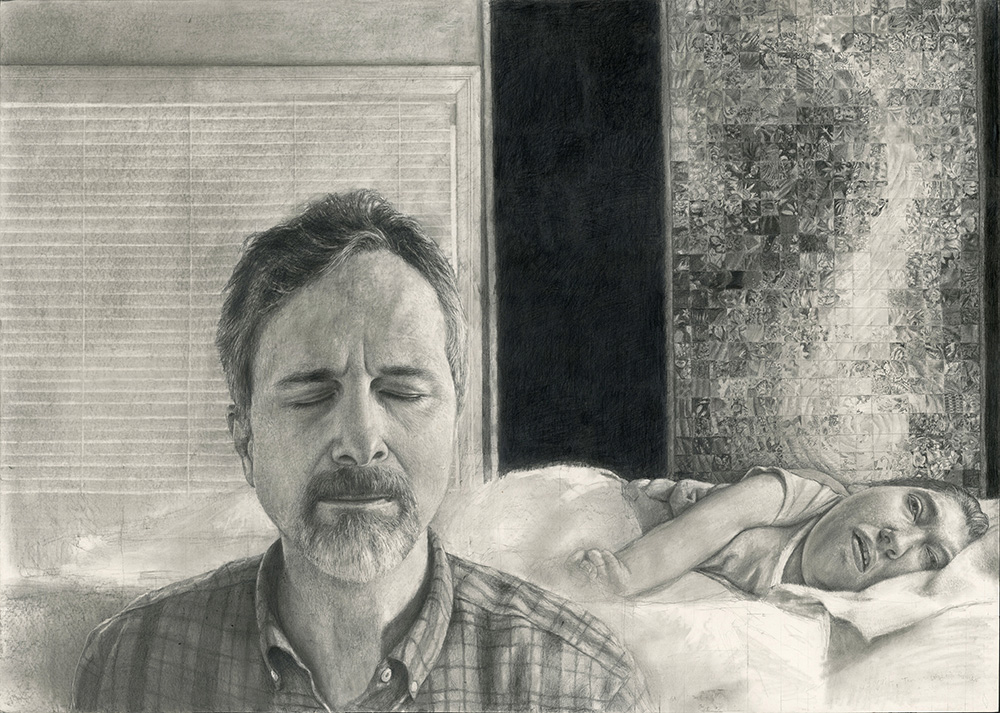Tim Lowly
Painting starts with material. This was an emphasis of my formal education in art. The focus was on a deep exploration of the materials of painting. I make representational paintings, but I am no less interested in how a painting is “presentational”. A painting has a presence in its materiality; a presence that evokes corporeality. I find the act of painting to be intrinsically related to being. Painting as material poetry is central to my art practice.
Painting, particularly realistic / representational painting is sometimes thought of and received in relation to the convention of “mastery”. This rationale holds little interest for me. As already stated, I am interested in painting as a kind of conversation with the material used to make it. No less importantly, I’m interested in painting that involves a regarding of the subject in humility: Here accuracy is in the service of trying to represent the subject as honestly and authentically as possible. Put another way: painting for me is learning how to make >this< painting in conjunction with trying to understand and represent >this< subject.
It is reasonable to question whether one has the right to pictorially represent another person, particularly someone who is not able to give consent. However, an unfortunate outcome of such concern related to the ethics of representation is that those who are intended to be protected are thus potentially left invisible and the broader culture has little access to the meaningfulness of their lives. My work is taken up with the no less important other side of this ethical issue: the right of each person to be represented, both literally (in the sense of being pictured) and (via metaphoric implication) politically. I came to working “realistically” with the intent to make art that is 1) as broadly accessible as possible and 2) which attempts to make present “provisional” humanity–those whose presence and voice are conventionally absent in the public’s consciousness.
The above-stated more general “political” interest has for me increasingly found particular traction in a long-term on-going relational project with my daughter Temma. Conventionally persons like Temma are categorized as “profoundly disabled”. I find that categorization–which essentially reduces the understanding of such persons to what they lack–to be misleading. Temma is profoundly “other”. My painting centers in an attempt to existentially regard and faithfully represent Temma as a profoundly (and meaningfully) other subject.










